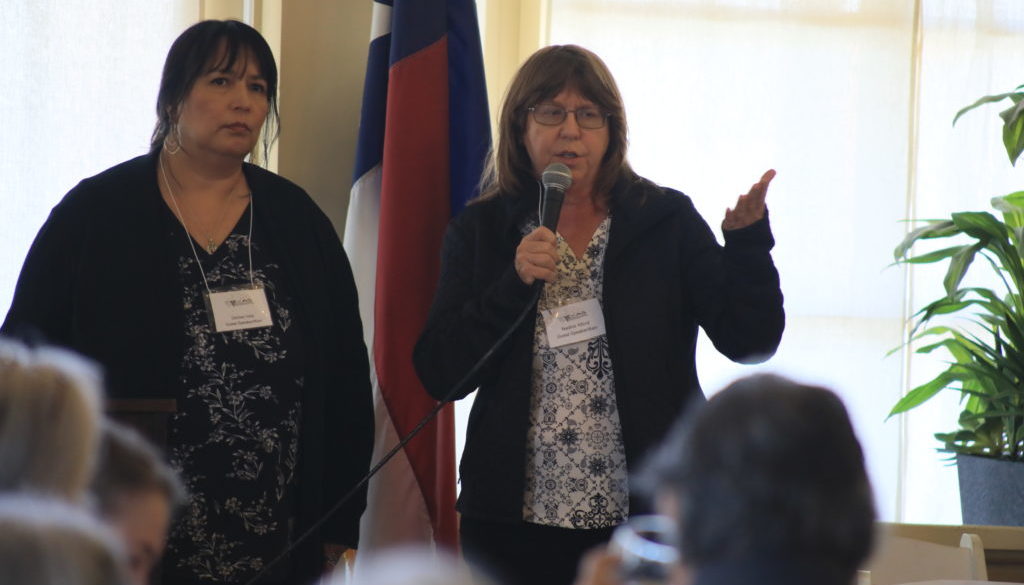Election officials from across the Hill Country participated in a panel discussion regarding election security at the county level.
Hosted by Texas Democratic Women of the Hill Country, the featured speakers drew a crowd curious about the processes of conducting an accurate and true election, as well as the differences between counties.
Giving their perspective on keeping an election secure were a variety of election officials from Bandera, Gillespie, and Kerr counties. Andrea Jankoski, Bandera County Tax Assessor-Collector, was joined by Amanda Labay-Gonzalez, the Chief Deputy of Elections.
Jim Riley brought his point of view as an election administrator in Gillespie County. Representing Kerr County was Kerr County Clerk Nadene Alford and her deputy clerk, Denise Vela.
Panelists began by answering a series of questions regarding how each county protects its election integrity, from voter registration to counting ballots.
“I’m also the voter registrar for Gillespie County. Everything starts and ends in our office. We maintain county election roles in-office, so we can find out how many of the approximately 27,000 people are properly registered, and able to do that in a timely manner,” Riley said.
When it comes to voter registration processes in Bandera County, Jankoski echoed a similar sentiment to Riley. However, Kerr County does not operate in the same way.
“In Kerr County, the tax office, for a lot of reasons, handles our voter registration,” said Kerr County Clerk Nadene Alford.
Moderator of the panel, and experienced poll volunteer, Mary Ellen Summerlin, expanded on why Kerr County’s registration is handled differently than neighboring counties.
“If you have an elections department, it can do both functions. But if you don’t have an elections department, then the tasks devolve on the tax assessor and the county clerk. That’s what’s happening in Kerr County. Clerk’s office does elections, tax assessor does registration,” Summerlin said.
The officials then detailed the specific safeguards their counties implement to ensure security during elections.
“That’s a big word … security. When I think of security, I think of our law enforcement and the safety of our voters during the election process. So, in our county, to secure our elections we had meetings with our local law enforcement to get on the same page and have a plan for elections. Law enforcement was also present when ballots were transported, to be part of the chain of custody to secure the ballots,” Jankoski said of Bandera.
In Gillespie County, Riley reveals a similar relationship with law enforcement during elections.
“We call it an I.A.P. An Incident Action Plan. Basically it is a way of knowing exactly what would happen, if something happened,” Riley said.
When it comes to making sure every vote is counted accurately, officials elaborated on specific concerns like inaccuracies with mail-in ballots.
“We got a lot of calls where voters didn’t receive their mail-in ballots or worried that we didn’t receive it. That was a very important thing that we had to address in this last election. We logged every mail ballot that we sent out, and logged again when the voter received it. This was an important way of tracking the path of a ballot so that when people called, we could reassure them,” Jankoski said.
Following the curated questions, the panelists opened the discussion to the crowd, answering polling specific questions regarding how to volunteer at a polling station, how to register to vote, and how voting equipment works.
For more information about upcoming events with the Texas Democratic Women of the Hill Country, check out their website at www.hillcountrytxdemocraticwomendotorg.wordpress.com.
